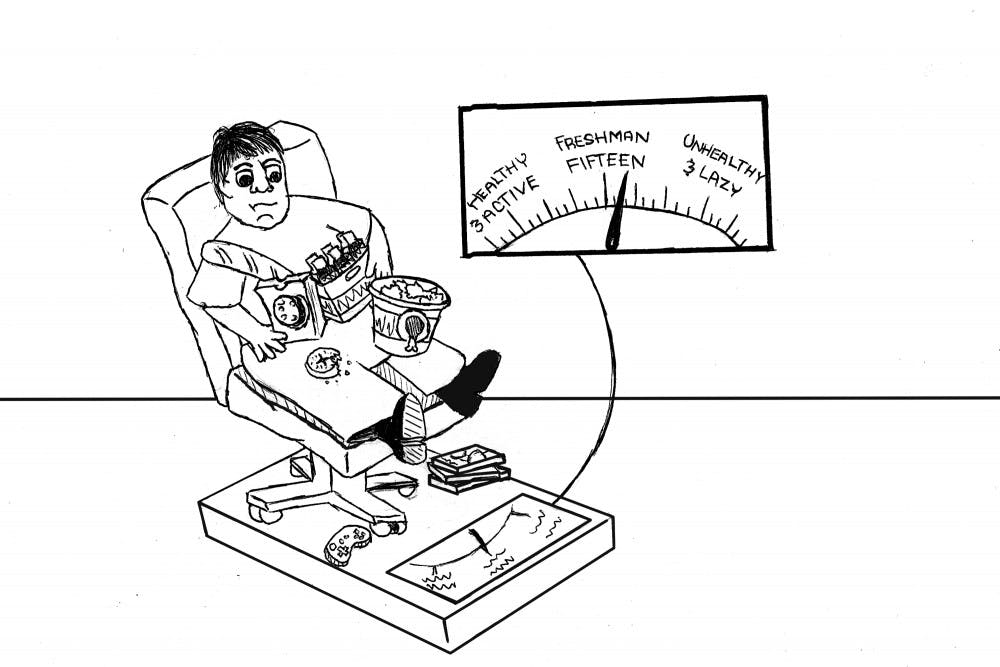How you can beat the freshmen 15

As students leave home for college they are often told a cautionary tale of the freshmen 15.
While most typically gain six pounds their first year instead of 15; weight gain is a real threat to freshmen.
According to Nutrition professor Najat Yahia, a lifestyle change for most college students contributes to the issue.
“During their first year, they become less physically active as they spend more time focusing on school and studying,” Yahia said. “Another factor is related to being away from home, so they have more freedom in their choices and they tend to consume more alcohol which can contribute to higher caloric intake.”
Portland senior Zach Goodman experienced this first hand.
“I gained about 30 pounds. I ate all the time and had an unlimited meal plan. Me and my friends would drink a lot too, so that probably had something to do with it,” Goodman said.
Since his freshmen year he has managed to keep the weight off.
“I worked out that whole year, but apparently not enough," Goodman said. "I’m not eating five meals a day at the cafeteria anymore. It was just having food available 24/7 that got me."
Yahia suggests students eat three main meals a day and two snacks.
“Start the day with a healthy breakfast," Yahia said. "Choose fresh fruits, fat-free yogurt, boiled eggs, whole-grain bread and low-fat cheese or milk. Snack on fresh vegetables such as carrot sticks or celery, or fresh fruits. Include a lean protein snack such as low-fat yogurt to provide satiety and to prevent binge eating."
Flushing senior Brooke Rogers has managed to keep her weight in check while at CMU.
“I work out and try to eat healthy," Rogers said. "I do a lot of cardio and weight training helps a lot. Portion control is important and staying away from fried foods."
Rogers also suggested students become smarter grocery shoppers.
“Try to stay along the perimeter of the store when shopping for groceries because that’s where the healthy food is."
The most common nutrition mistakes Yahia sees among students are the misconceptions that night time eating, consuming alcohol or drinking sugary beverages will not contribute to weight gain, and skipping breakfast or skipping meals will help them lose weight.
Although there are many tactics to avoid putting on weight during college, there will always be the inevitable few pounds gained since graduating high school.
“I feel like I’ve gained weight (since high school) but I don’t think it’s necessarily from freshmen 15 but more like getting older and your metabolism slowing down. I feel like as you get older you just gain weight,” Rogers said.



